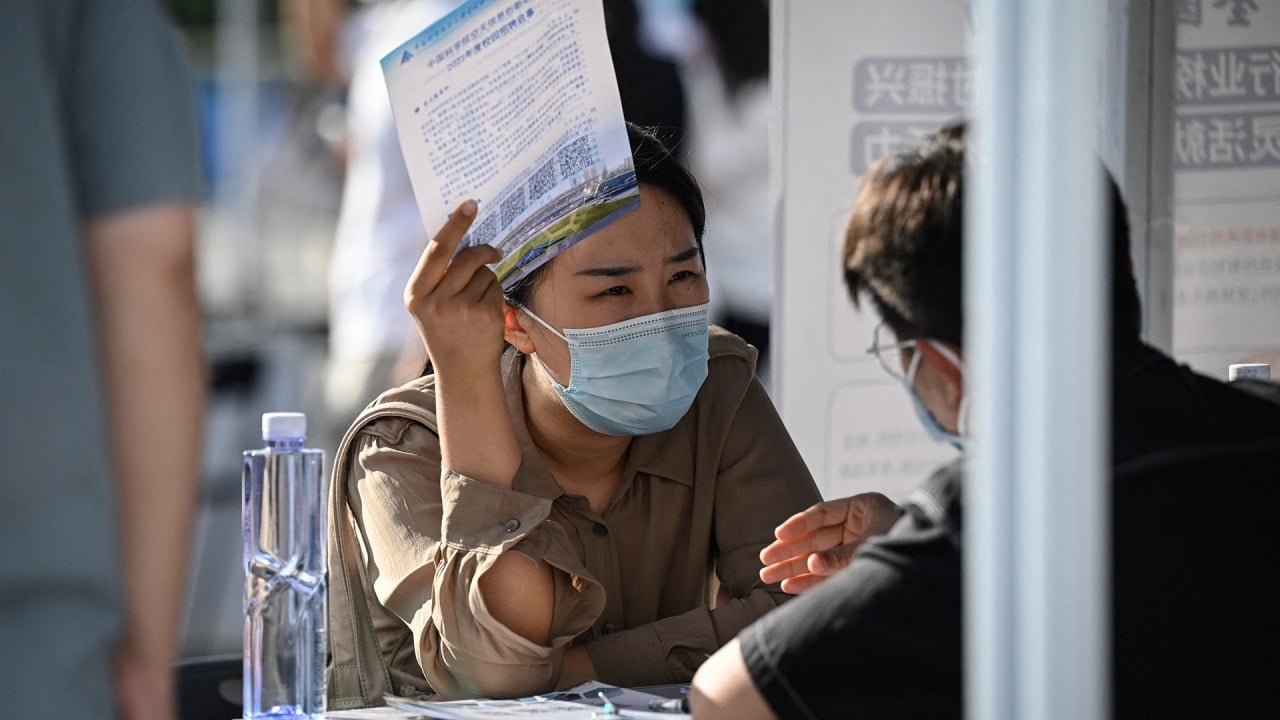Another clear disadvantage is that most of the companies he applied to no longer accept online interviews, and with the end of pandemic restrictions, companies now prefer to assess candidates in person.
China's civil service is in high demand, with 2.83 million people applying for the exam
China's civil service is in high demand, with 2.83 million people applying for the exam
„College degrees are very low in China,” Li said. „And companies set high thresholds for fresh graduates to do simple work.”
„The employment difficulties for domestic graduates in China will inevitably spread to foreign students,” said Peng Peng, executive chairman of the Guangdong Society of Reform Think Tank.
Li didn't consider returning to work in China until the final year of her three-year program, when a family illness prompted her to seek opportunities closer to home.
However, even students who enroll in one-year programs abroad quickly decide that opportunities in China are better, choosing to travel again after their studies.
Eva Tsai, who studies marketing communication in the US, is determined to use her family's connections in China for a more promising career rather than competing with locals as layoffs in several industries in her temporary home.
The one-year master's program Tsai attended does not offer optional practical training, a work permit that allows international students on F-1 visas to obtain temporary employment within the United States.
As my family can provide resources and connections, I am positive about finding a job in the mainland
This made it nearly impossible for Tsai to find a job after graduation, she said.
Despite the stiff competition, Tsai, who holds a Taiwanese passport, prefers to work in mainland China as opportunities at global companies are greater compared to the island. Other concerns include inflation, flat salaries and limited openings.
“I am in favor of finding a job in the mainland because my family can provide resources and connections,” Tsai said.
Tech giants and multinationals have been top picks for foreign graduates for years, but uncertainty in the private sector has changed graduates' attitudes as the economy lurches towards recovery.
As Chinese families cut costs, studying abroad is becoming more difficult
As Chinese families cut costs, studying abroad is becoming more difficult
A survey by Zhaopin, a major Chinese recruiting site, found that 38.8 percent of students with foreign degrees hope to work in state-owned enterprises in 2022, up 9 percent from 2021.
The proportion expecting direct government employment as civil servants was about 21 percent.
Foreign graduates' interest in civil service reflects a greater desire for a stable career path.
According to the survey, 74.4 percent of graduates believe there is „civil service exam mania” among outgoing students in 2022, up from 59 percent in 2021.
Local bodies took note. In September, the Shanghai government's „directed selection” civil servant training program was opened to graduates from 73 designated foreign universities.
The Beijing government soon followed suit, expanding eligibility for the program to alumni of the top 100 institutions in the 2023 Shanghai Ranking of World Universities.
If I can't find a better one next spring, I have no choice but to have what I have now
A business student in Europe, Li says most of her friends back in China end up in state-owned enterprises and government agencies because they have strong financial support and local connections.
However, Li said he would not have started his career in China if his parents were ill.
He will continue to apply for jobs next season because the one offer he received only met his „minimum expectations.”
„If I can't find something better next spring, I have no choice but to have it now,” he added.

„Oddany rozwiązywacz problemów. Przyjazny hipsterom praktykant bekonu. Miłośnik kawy. Nieuleczalny introwertyk. Student.


